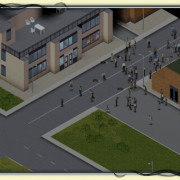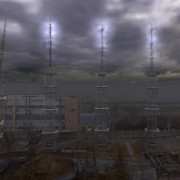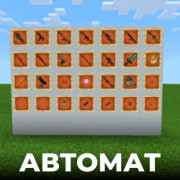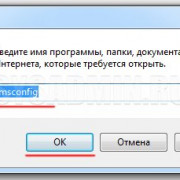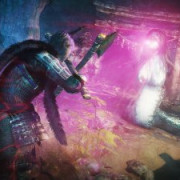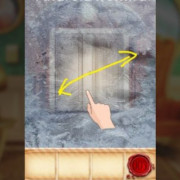Что такое пневматический подседельный штырь для велосипеда (дроппер)
Содержание:
Usage[]
A dropper can be used as a container or as a redstone component to move objects.
A dropper can be placed so that its output faces in any direction, including up or down. When placed, the dropper’s output faces toward the player. With default textures, the droppers output side looks like a face when positioned for horizontal output. Otherwise, the output side has a square hole.
A dropper cannot be moved by pistons in Java Edition.
Container
A dropper has 9 slots of inventory space.
To open the dropper GUI, use the Use Item control. To move items between the dropper inventory and the player inventory or hotbar while the dropper GUI is open, drag or shift-click the items. To exit the dropper GUI, use the Esc control.
By default, the GUI of a dropper is labeled «Dropper». A dropper’s GUI label can be changed by naming the dropper in an anvil before placing it, or by using the command[Java Edition only] (for example, to label a dropper at (0,64,0) «Alice’s Dropper», use ).
A dropper can be «locked» (or subsequently unlocked) by setting the dropper’s tag with the command. If a dropper’s tag is not blank, the dropper cannot be accessed except by players holding an item with the same name as the tag’s text. For example, to lock a dropper at (0,64,0) so that only players holding an item named «Alice’s Key» can access the dropper, use .[Java Edition only]
Redstone component
See also: Redstone circuit
A dropper can be used to eject items, or push items into another container.
- Activation
- A dropper can be activated by:
- an adjacent active power component (Exceptions: a redstone torch does not turn ON a dropper it is attached to)
- an adjacent powered opaque block (strongly-powered or weakly-powered)
- a powered redstone repeater or redstone comparator facing the dropper
- powered redstone dust configured to point at the dropper, or on top of it, or a directionless «dot» next to it; a dropper is not activated by adjacent powered redstone dust that is configured to point in another direction.
- In addition to the methods above, droppers can also be activated by quasi-connectivity.[Java Edition only] A dropper activates if one of the methods above would activate a mechanism component in the block above the dropper, even if there is no mechanism component there (even if the block above the dropper is air or a transparent block), but only when the dropper receives a block update (including a redstone update within two blocks of the dropper).
- A dropper has a 2 redstone tick (4 game ticks, or 0.2 seconds barring lag) delay between activation and a response. During this time, additional inputs are ignored.
- Behavior
See also:
- When activated, a dropper waits 2 redstone ticks (4 game ticks, or 0.2 seconds barring lag) and then ejects one item from its inventory. The dropper does not continue to eject items while activated — ejection occurs only on the initial activation (the of an input signal). To eject multiple items, repeatedly activate the dropper with a clock circuit.
- If multiple slots are occupied by items, a random occupied slot is chosen for ejection. The slot is chosen when an item is ejected, not when the dropper is initially activated, thus it is possible to move items into or out of a dropper between its activation and item dispensing.
- If the dropper is facing a container, the ejected item is transferred into the container. If the container it is facing is full, the dropper does not activate. Otherwise, the item is ejected in the direction the dropper is facing, as if a player had used the Drop control. Even items that would be treated differently by a dispenser (such as arrows) are simply ejected by a dropper.
- A dropper makes a clicking noise (the sound event) when activated empty, when ejecting items into air, or when ejecting items into any block other than a chest type container or barrel or another dropper. It is silent when it successfully transfers an item into any kind of chest or barrel, or another dropper.
A dropper is an opaque block, so powering it directly can cause adjacent mechanism components (including other droppers) to activate as well.
A line of droppers, each pushing items into the next dropper, is known as a dropper pipe. A dropper pipe must be clocked to move items, but can be clocked to move items faster than a hopper pipe’s transfer rate. When a dropper pipe pushes items upwards, it is known as a droppervator (short for «dropper elevator»).
History[]
| Java Edition | |||||
|---|---|---|---|---|---|
| 1.5 | 13w03a | Added droppers. | |||
Droppers are crafted using 7 cobblestone, one hopper, and one piece of redstone:
|
|||||
| The top and bottom textures of droppers currently remain fixed regardless of the facing direction. | |||||
| 13w04a | Droppers can now face all six directions. | ||||
| The crafting recipe of droppers has now been changed, removing the hopper from the middle. | |||||
| 13w10b | Activated droppers now do not fire if they receive a block update. | ||||
| 1.8 | 14w25a | The models of dropper have been changed. | |||
| 1.9.1 | pre1 | Droppers can now use loot tables. | |||
| 1.13 | 17w47a | Prior to The Flattening, this block’s numeral ID was 158. | |||
| 1.14 | 18w43a | The textures of droppers have now been changed. | |||
| Pocket Edition Alpha | |||||
| v0.14.0 | build 1 | Added droppers. | |||
| v0.15.0 | build 1 | Droppers can now be moved by pistons. | |||
| Bedrock Edition | |||||
| 1.10.0 | beta 1.10.0.3 | The textures of droppers have now been changed. | |||
| Legacy Console Edition | |||||
| TU19 | CU7 | Patch 1 | Added droppers. | ||
| The textures of droppers have now been changed. | |||||
| New Nintendo 3DS Edition | |||||
| 0.1.0 | Added droppers. |
Сферы применения
 Как уже упоминалось ранее, есть ряд велосипедных дисциплин, где важна универсальность велосипеда, а не только максимальная легкость или максимальная жесткость. Например, в кросс-кантри заездах, трассы проходят по пересеченной местности. В пределах одной трассы встречается ряд различных препятствий, для которых неплохо было бы иметь возможность налету менять посадку, для комфортного их преодоления и для экономии драгоценных секунд. Тоже самое с трейл и эндуро дисциплинами. Маршрут который может пролегать не только вниз по трейлу (тропинке), а и с затяжными апхиллами (подъемами) во время того, как райдеры добираются до желаемого спуска.
Как уже упоминалось ранее, есть ряд велосипедных дисциплин, где важна универсальность велосипеда, а не только максимальная легкость или максимальная жесткость. Например, в кросс-кантри заездах, трассы проходят по пересеченной местности. В пределах одной трассы встречается ряд различных препятствий, для которых неплохо было бы иметь возможность налету менять посадку, для комфортного их преодоления и для экономии драгоценных секунд. Тоже самое с трейл и эндуро дисциплинами. Маршрут который может пролегать не только вниз по трейлу (тропинке), а и с затяжными апхиллами (подъемами) во время того, как райдеры добираются до желаемого спуска.
А как известно, для комфортного преодоления подъема и экономии «жизненного ресурса» коленных суставов, необходимо это делать с поднятым седлом. Таким способом меняется посадка – смещая центр тяжести к рулю, разгружаются колени, повышается усилие на педалирование.
При спуске же с уклона наоборот – седло опускается, повышая маневренность наездника, давая возможность смещать центр тяжести за седло. В случае с исполняемыми элементами на трейле тоже самое, с поднятым седлом райдер практически обездвижен в плане свободы действий.
Sounds[]
Generic
Java Edition:
| Sound | Subtitles | Source | Description | Resource location | Translation key | Volume | Pitch | Attenuationdistance |
|---|---|---|---|---|---|---|---|---|
| Block broken | Blocks | Once the block has broken | 1.0 | 0.8 | 16 | |||
| None | Blocks | Falling on the block with fall damage | None | 0.5 | 0.75 | 16 | ||
| Block breaking | Blocks | While the block is in the process of being broken | 0.25 | 0.5 | 16 | |||
| Block placed | Blocks | When the block is placed | 1.0 | 0.8 | 16 | |||
| Footsteps | Blocks | Walking on the block | 0.15 | 1.0 | 16 |
- ↑
Bedrock Edition:
| Sound | Source | Description | Resource location | Volume | Pitch |
|---|---|---|---|---|---|
| Blocks | Once the block has broken | 1.0 | 0.8 | ||
| Blocks | Falling on the block with fall damage | 0.4 | 1.0 | ||
| Blocks | While the block is in the process of being broken | 0.37 | 0.5 | ||
| ? | Blocks | Jumping from the block | 0.12 | 1.0 | |
| ? | Blocks | Falling on the block without fall damage | 0.22 | 1.0 | |
| Blocks | Walking on the block | 0.3 | 1.0 | ||
| Blocks | When the block is placed | 1.0 | 0.8 |
Unique
Java Edition:
| Sound | Subtitles | Source | Description | Resource location | Translation key | Volume | Pitch | Attenuationdistance |
|---|---|---|---|---|---|---|---|---|
| https://minecraft.fandom.com/wiki/File:Click.ogg | Dispensed item | Blocks | Dropper activating | 1.0 | 1.0 | 16 | ||
| https://minecraft.fandom.com/wiki/File:Click.ogg | Dispenser fails | Blocks | Dropper failing to activate | 1.0 | 1.2 | 16 |
- ↑ The dropper reuses the dispenser’s sound events instead of having its own, see .
Разновидности
В современной реальности существуют вариации пневматических подседельных штырей, в зависимости от требований покупателя.
По типу приведения в действие механизма
В данный момент на рынке существует четыре основные разновидности типов приведения в действие механизма пневматических подседельных штырей:
- Расположение рычага, приведения в действие механизма, под седлом. Это наиболее бюджетный вариант конструкции. На фоне остальных разновидностей, этот вариант наименее удобный в использовании. А учитывая стремительное снижение стоимости пневматических дропперов, подседельное расположение рычага практически вытиснилось с рынка другими конструкциями;
- Рычаг управления нарульный с гидролинией. В данном случае рычаг выглядит как курок переключения скоростей и располагается там же – на руле. Но, по аналогии с гидравлическими тормозами, имеет гидролинию, с помощью которой и приводит в действие клапан пневматического картриджа. Также не самое популярное решении, так как гидролиния имеет свои слабые места. Например, она имеет свойство завоздушиваться или же со временем терять качество масла, на основе которого она и работает. В обоих случаях необходима прокачка гидролинии с частичной или полной заменой масла. А это лишние заботы и затраты на обслуживание;
- Рычаг управления нарульный тросиковый. Наиболее востребованная вариация. Когда производители смекнули, что в данном случае на рычаг не прикладываются такие усилия, как на тормоза, поняли, что нецелесообразно вносить в конструкцию лишние усложнения в виде гидролинии;
- Новомодный, совсем недавно появившийся на рынке вариант – беспроводное управление дроппером. В данном случае на подседельном штыре устанавливается беспроводная система управления и аккумулятор, а на руль цепляется эргономичная беспроводная кнопка со своей батарейкой формфактора «таблетка». Крайне достойный тип управления. Но пока система совсем «молодая», потому стоимость таких дропперов крайне высока. На рынке она представлена несколькими пневматическими подседельными штырями: Magura Vyron eLECT и RockShox Reverb AXS.
По типу прокладки кабелей
 Следующая стадия различий заключается в типе прокладки кабелей от рычага управления к пневматическому картиджу:
Следующая стадия различий заключается в типе прокладки кабелей от рычага управления к пневматическому картиджу:
- Внешняя. Кабеля тянутся по внешней стороне рамы велосипеда. Не самый эстетически совершенный вариант. Но пока достаточно распространенный, потому как далеко не все производители конструируют рамы с внутренней прокладкой тросов;
- Внутренняя прокладка. Прокладка кабеля тянется внутри рамы и практически не видна снаружи, кроме части от рычажка до канавки рамы. Это решение более эстетичное и удобное. С каждым годом рам, поддерживающих внутреннюю проводку, становится все больше;
- Без кабелей. Этот вариант доступен на соответствующих пневматических подседельных штырях с беспроводным управлением. Самый крутой и самый дорогой.
По общей длине конструкции
Еще одно различие заключается в длине корпуса подседельного штыря. От которой, в свою очередь, косвенно зависит и максимальная длина хода выдвигаемого штока. При этом чем больше диапазон хода штока, тем больше длина корпуса дроппера ему необходима, но у дропперов с большой длиной корпуса не обязательно может быть большая длина хода штока.
Длина корпуса представленных на рынке моделей составляет от 295 мм. до 560 мм. Длина хода штока от 35 мм. до 210 мм.
По диаметру подседельной трубы
 И наконец различие по диаметру подседельной трубы. Этот параметр присутствует и в обычных подседельных штырях.
И наконец различие по диаметру подседельной трубы. Этот параметр присутствует и в обычных подседельных штырях.
В данный момент их существует 4 разновидности:
- 27.2 мм.;
- 30.9 мм.;
- 31.6 мм.;
- 34.9 мм..
Наиболее распространенные из них это 30.9 мм. и 31.6 мм.
Data values[]
ID
Java Edition:
| Name | Resource location | Form | Translation key |
|---|---|---|---|
| Dropper | Block & Item |
| Name | Resource location |
|---|---|
| Block entity |
Bedrock Edition:
| Name | Resource location | Numeric ID | Form | Translation key |
|---|---|---|---|---|
| Dropper | Block & Item |
| Name | Savegame ID |
|---|---|
| Block entity |
Metadata
See also: Data values
In Bedrock Edition, a dropper’s block data specifies its orientation and activation status:
| Bits | Values |
|---|---|
| 0x10x20x4 |
A three-bit field storing a value from 0 to 5 specifying which direction the dropper is facing:
|
| 0x8 | Set if dropper is activated. |
Block states
See also: Block states
Java Edition:
| Name | Default value | Allowed values | Description |
|---|---|---|---|
| facing | The direction in which contents are shot or dropped.The opposite from the direction the player faces while placing the block. | ||
| triggered | True if this block is activated. |
Bedrock Edition:
| Name | Default value | Allowed values | Description |
|---|---|---|---|
| facing_direction | The direction in which contents are shot or dropped.The opposite from the direction the player faces while placing the block. | ||
| triggered_bit | True if this block is activated. |
Block data
A dropper has a block entity associated with it that holds additional data about the block.
Java Edition:
See also: Block entity format
-
Block entity data
- Tags common to all block entities
- CustomName: Optional. The name of this container in JSON text component, which appears in its GUI where the default name ordinarily appears.
-
Items: List of items in this container.
-
: An item, including the slot tag. Dropper slots are numbered 0-8 with 0 in the top left corner.
- Tags common to all items
-
: An item, including the slot tag. Dropper slots are numbered 0-8 with 0 in the top left corner.
- Lock: Optional. When not blank, prevents the container from being opened unless the opener is holding an item whose name matches this string.
- LootTable: Optional. Loot table to be used to fill the dropper when it is next opened, or the items are otherwise interacted with.
- LootTableSeed: Optional. Seed for generating the loot table. 0 or omitted uses a random seed.
- ↑ Both loot table tags get removed once the items have been generated.
Bedrock Edition:
- See Bedrock Edition level format/Block entity format.
